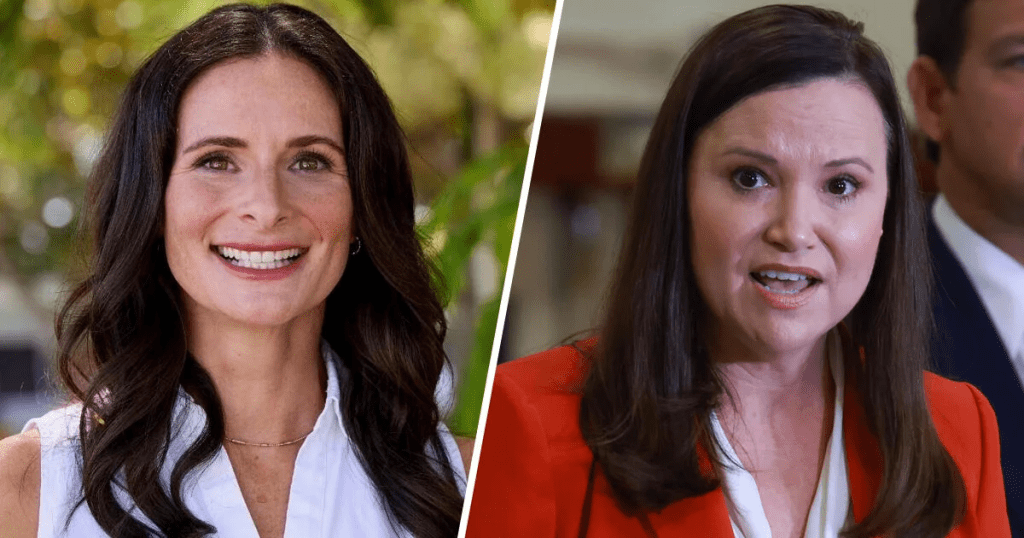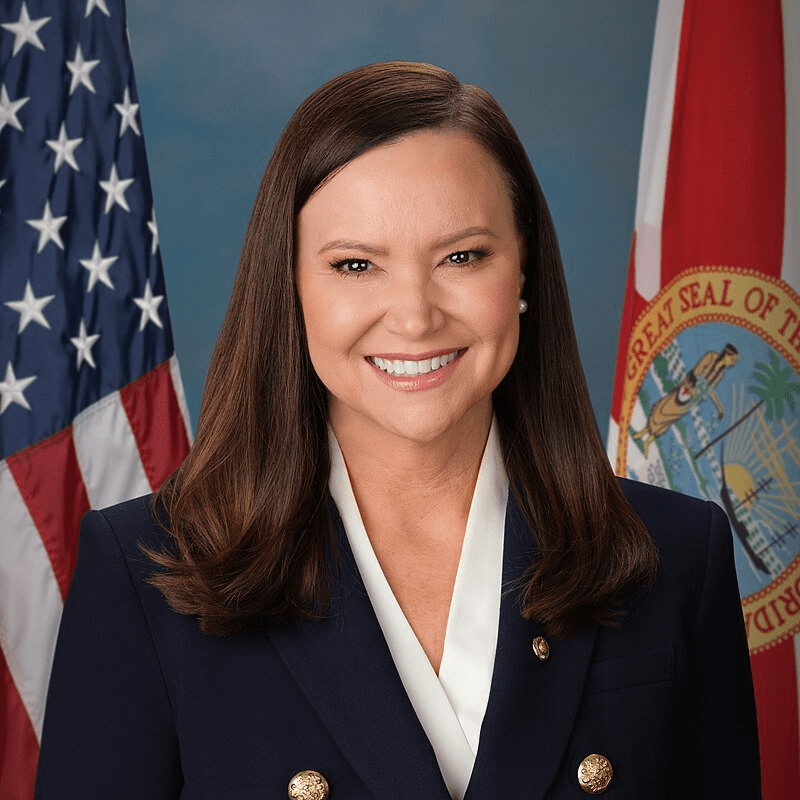New University of North Florida poll shows Ashley Moody leading Jennifer Jenkins 49–38% in 2026 Senate race with Trump’s endorsement
A new University of North Florida poll is giving Republicans plenty of reason to celebrate as Florida’s 2026 U.S. Senate race takes shape. The survey, conducted between October 20 and October 26, 2025, among 807 likely voters, shows Senator Ashley Moody leading Democrat Jennifer Jenkins by 11 points — 49 percent to 38 percent — with 10 percent still undecided. The poll carries a margin of error of plus or minus 3.5 percent.

Ashley Moody, Florida’s former Attorney General who was appointed to the U.S. Senate in early 2025 after Marco Rubio joined President Trump’s administration, has quickly solidified herself as one of the most influential conservative voices in the state. Her appointment brought immediate credibility to her campaign, and Trump’s full endorsement in July 2025 helped turn that credibility into commanding political strength. The former president’s influence among Florida Republicans remains unmatched, and his backing has clearly resonated with voters across the state.
Florida’s political landscape has been shifting steadily to the right for several election cycles, and this latest poll underscores that transformation. The GOP currently holds a voter registration advantage of more than 1.4 million over Democrats — a number that continues to widen. Moody’s lead reflects not only her own popularity but also the broader trend of Republican dominance in a state that voted for Trump by 13 points in the 2024 presidential election.

Jennifer Jenkins, a Democratic school board member known for her advocacy on education and healthcare, faces an uphill battle in a state that has grown increasingly resistant to progressive messaging. Her campaign has centered on affordability issues, women’s rights, and environmental protection, but so far, her message has yet to gain traction beyond core Democratic areas.
Political analysts say Moody’s advantage lies in her consistent conservative record and her alignment with Trump’s “America First” agenda, which continues to define Florida’s political identity. Moody’s tenure as Attorney General established her reputation as tough on crime and staunchly pro-law enforcement, positions that still resonate deeply with voters across Florida’s suburbs and small towns. Her emphasis on securing borders, defending parental rights, and protecting businesses from federal overreach has made her one of the most visible and trusted Republicans in the state.

Meanwhile, Jenkins faces the challenge of uniting a fractured Democratic base. Many strategists note that Florida Democrats have struggled to generate enthusiasm since their losses in the 2024 cycle. Despite those headwinds, Jenkins remains optimistic, telling supporters she believes that “Florida deserves balance” and that she intends to bring “honesty and compassion” back to Washington.
Still, the math tells a different story. With Moody already near the 50-percent mark, Jenkins would need an extraordinary turnout surge or major political event to close the gap. Even among independents, Moody holds a narrow but notable advantage, according to the poll. The data suggests that most undecided voters lean center-right, further reinforcing the Republican edge heading into 2026.
For conservatives, the takeaway is simple: Florida appears firmly in the GOP column. With Trump’s endorsement driving enthusiasm, and with Moody maintaining high favorability ratings, Republicans are heading into the midterms with one of their strongest Senate incumbents in the nation. For Democrats, Florida may once again prove to be the mountain too steep to climb.

